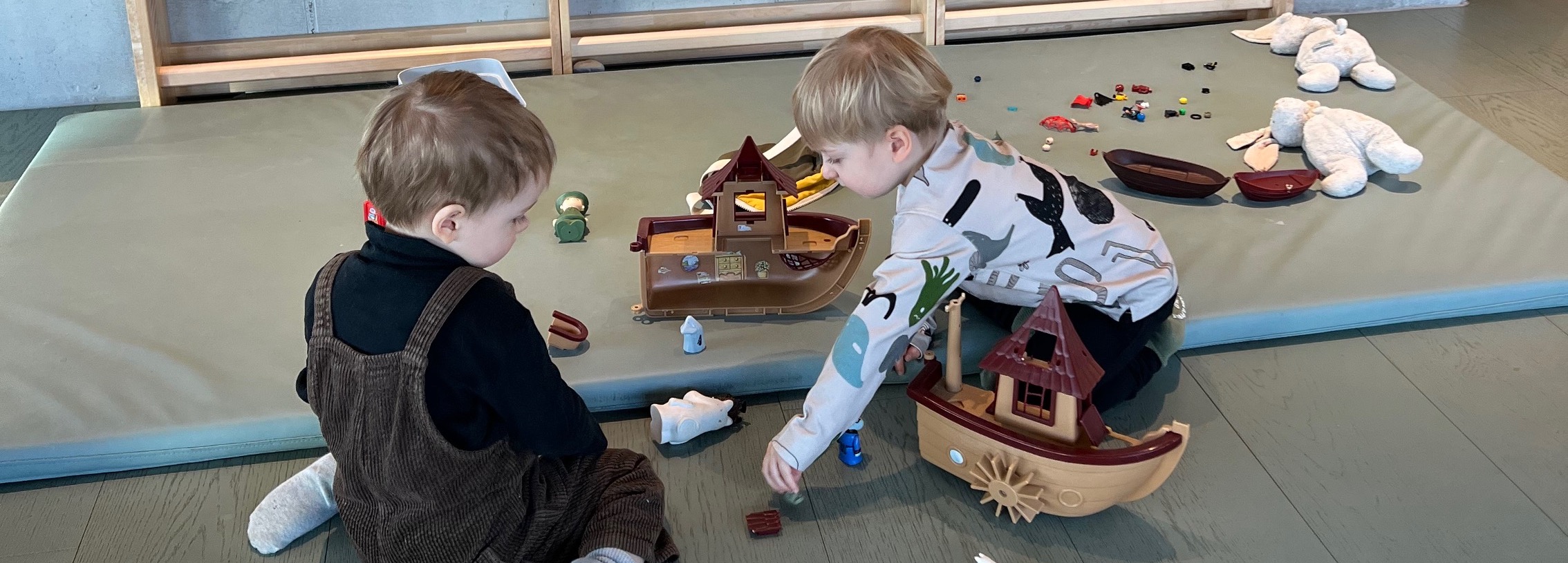Play is state of mind that one has when absorbed in an activity that provides enjoyment and a suspension of sense of time. And play is self-motivated so you want to do it again and again.

According to the National Institute for Play, play is crucial for early childhood development. Researchers have shown that play is a deep-rooted biological process that is crucial to early childhood development. The biology of play has evolved because play promotes learning and adaptability, and therefore also survival in the world.
Children learn most effectively through play:
💥 Learning through play leverages children's interests and sparks curiosity, creativity, and motivation to learn.
⛹️♂️ Play engages multiple brain areas fostering motor skills, language, and problem-solving capabilities.
🥰 Play supports children's social and emotional ability to understand who they are and how to interact with others.
Children truly enjoy and love to play and play is the best thing you can offer children. Therefore, make sure to include slots that have time for free play in your weekly schedule.
Play gets better if the environment is optimal. First of all, playtime should be long enough so that children get to evolve their play without rushing. Quiet and calm play space gives more possibilities for their creativity to blossom. The play environment should also be inspiring with good toys or other materials. Play areas could be marked for example with shelves or carpets, so that one big room has several smaller play areas. It is a good idea to divide children into small groups so that 2-5 children are playing together in one play corner. Overall, the children should feel comfortable in the play space.
Free Play — self-initiated play time — is a sacred space. As a parent, one of your jobs is to protect that space for your kids. Not interrupt it unnecessarily and not have other adults interrupt it unnecessarily.
Personal interests guide children's play
According to National Institute for Play helping children pursue their interests through play is vital for their future and growth. Whatever skills children will need in their later life, play will help children understand how to learn, achieve things, and simply enjoy life Play teaches humans to do things they like!
Spend time observing and understanding children when they play. Mark down their interests and favorites. Try to see what engages the children and makes them happy. Making notes and taking photos of children's play is the first - and very important - step of the pedagogical documentation process.
What themes interest children?
What do children learn during play?
During play, children get to experience, practice and learn:
- joy
- friendship
- communication skills
- language skills
- gender roles
- identity
- self-control
- independency
- equality
- observation skills
- focusing
- thinking
- creativity
- planning
- rules and norms
- safety
- empathy
- emotional skills
- flexibility
- creativity
- sensory experiences
- body awareness
- motor skills
- frustration
Can you come up with some more?
During free play, adults do not need to feel useless though.
Adults can guide and enrich children's play by leading it forward when needed and supporting children to find or make materials for the play. Adults should also make sure all children enjoy themselves and feel comfortable with their roles. It is also vital that all children get to play peacefully - nobody should be left out or feel disturbed 🥰
Explore Kindiedays Experiential and Playful Lesson Plans HERE.
Happy playtime!
.png)